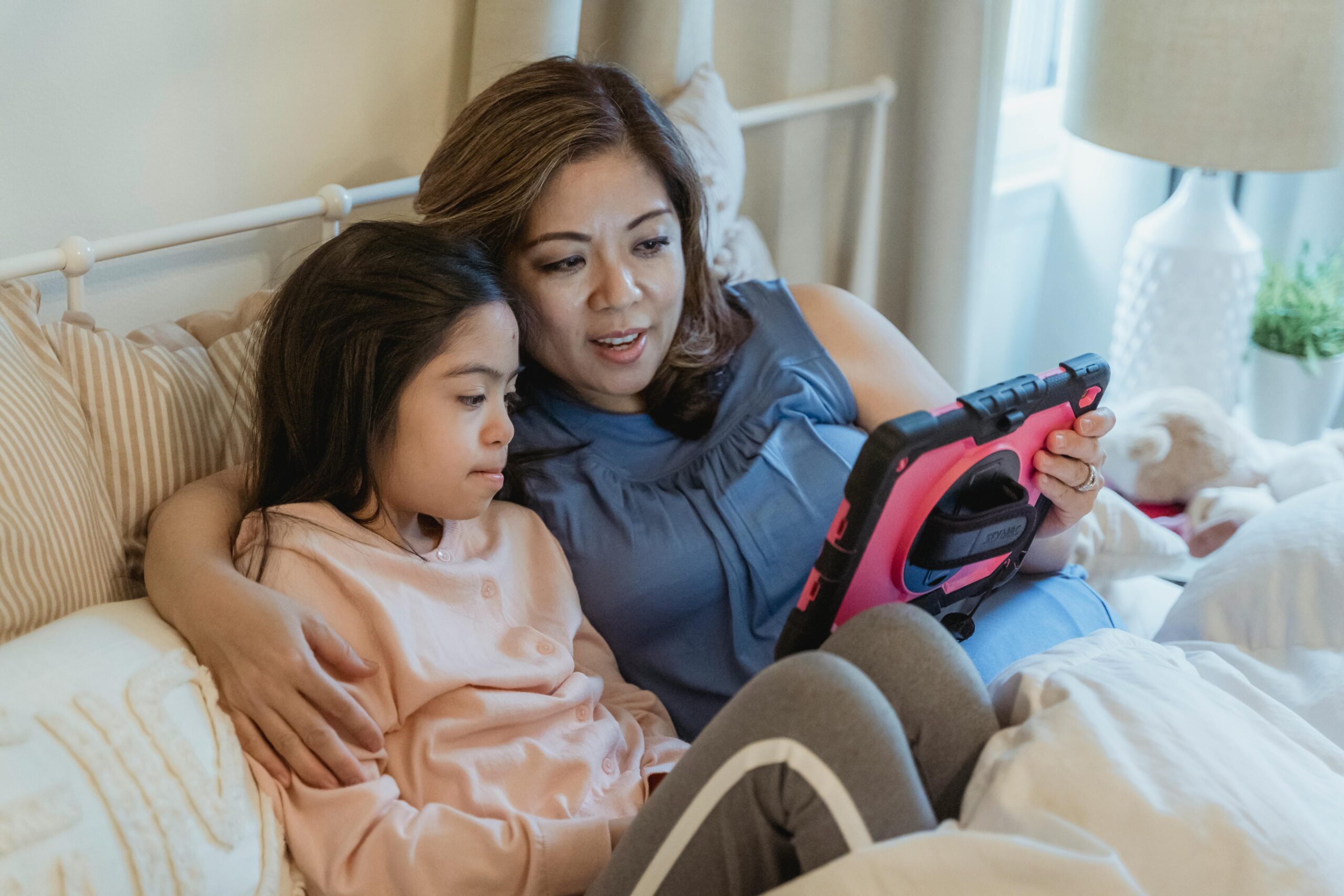Ever had a Sunday night when bedtime is extra tough? This is common for many kids, especially those who are neurodivergent, like kids with ADHD or autism. Maybe your child says their pajamas are itchy (sensory sensitivities are common!), or they get really upset when it’s time to stop playing and go to bed. Last night was like that at my house, and it made me think about how we can help.
Going from the fun, free weekend to the structured school week can be extra hard for neurodivergent kids. Changes in routine can be difficult. This change can make kids with ADHD or autism feel more anxious or overwhelmed. Parents can feel stressed too.
Usually, we want to stick to the bedtime rules. But I’ve learned that sometimes, we need to do things differently, especially for kids with different needs.
Last night, instead of fighting about bedtime, we stopped. We took deep breaths. We made a cozy nest on the floor with soft blankets and pillows (creating a sensory-friendly space). We made the lights dim and made a quiet, safe place. We talked. We talked about how Sundays can feel heavy and scary. We talked about how thinking about Monday can be hard. We talked about how it’s okay to feel these big feelings.
We didn’t force anything. We just spent time together.
This made me think about some important things for parents of neurodivergent kids, especially those with ADHD and autism:
- Understand Sensory Sensitivities: Kids with autism and sometimes ADHD can be very sensitive to things like tags in clothes, bright lights, or loud noises. Make sure their pajamas are comfortable and the bedroom is calm.
- Visual Schedules and Social Stories: For kids who benefit from routine and predictability (common in autism and helpful for some with ADHD), a visual schedule or a social story about bedtime can be very helpful.
- Listen to Their Feelings (and Understand Meltdowns): Don’t just tell your kids to stop being silly. If they say they’re worried, try saying, “I understand you’re feeling worried about tomorrow.” Meltdowns can happen when kids are overwhelmed; try to create a calm space and avoid adding to the stress.
- Friends First, Schedule Second (Flexibility is Key): Sometimes, being close to your child is more important than sticking to the exact bedtime. A few extra cuddles or a talk can be better than just making them go to bed on time. Flexibility is especially important for neurodivergent kids.
- Check Your Own Feelings (Self-Care is Crucial): Parenting neurodivergent kids can be challenging. It’s important to take care of yourself too.
- Create a Calm Place (Sensory Considerations): Make bedtime calm. Dim the lights. Play quiet, calming music (avoid anything too stimulating). Consider using a white noise machine or fan.
- You’re Not Alone! Find Support: Lots of parents have trouble with Sunday night bedtimes, especially with neurodivergent kids. Finding support groups or online communities for parents of kids with ADHD and autism can be very helpful.
These hard times are normal. They’re chances to be close to our kids and teach them how to handle their feelings. Sometimes, the best thing to do is just be there for them.
Check out some of our videos on Facebook to learn more about how we support ADHD and Autistic children. Pics of me and these wild neuro spicy kids for tax 😉




